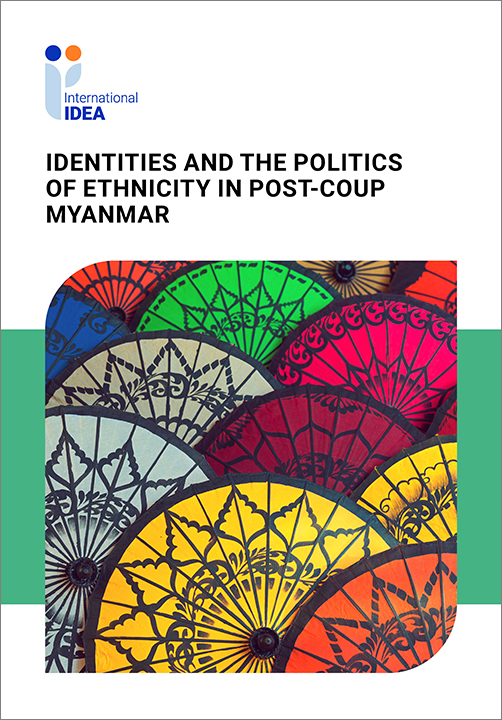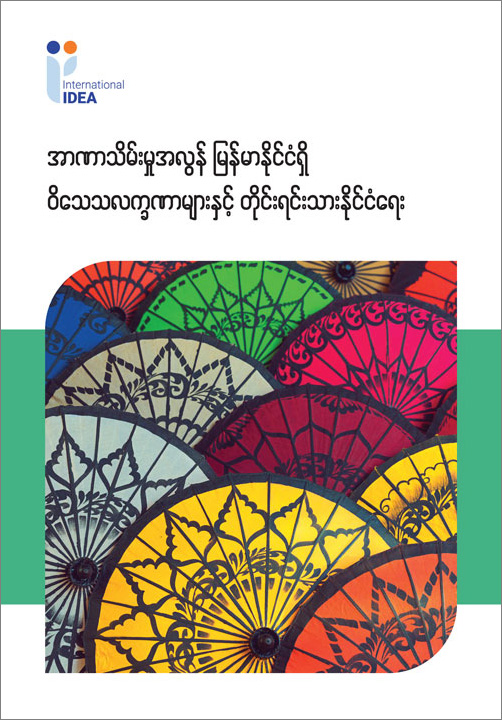Identities and the Politics of Ethnicity in Post-coup Myanmar


မြန်မာနိုင်ငံတွင် သက်ဆိုးရှည်နေသည့် နိုင်ငံရေးအကျပ်အတည်းကို နားလည်နိုင်ရန်အတွက် ဝိသေသလက္ခဏာနှင့် တိုင်းရင်းသားလူမျိုးစုအရေးတို့ကို သိရှိရန်အရေးကြီးပါသည်။
အများပါဝင်သည့် ဖက်ဒရယ်ဒီမိုကရေစီစနစ် တည်ဆောက်ရေး ကြိုးပမ်းရာတွင်လည်း ယင်းတို့သည်ပင် အဓိကအကြောင်းအချက်များ ဖြစ်ပါသည်။ လူမှုရေးနှင့် နိုင်ငံရေး လိုလားချက်များအပေါ် ဝိသေသလက္ခဏာနှင့် တိုင်းရင်းသားအရေးတို့က မည်သို့ သက်ရောက်မှုရှိကြောင်း ပိုမို၍ သိရှိနားလည်နိုင်ရန် နိုင်ငံရေးစနစ်များနှင့် အဖွဲ့အစည်းများကို နိုင်ငံသားများ၏ ရှုမြင်ပုံများ၊ မူဝါဒဆိုင်ရာ လိုလားချက်များနှင့် နိုင်ငံရေးသဘောထားများကိုလည်းကောင်း၊ လူမှုရေးနှင့် နိုင်ငံရေးနယ်ပယ်တွင် အတူတကွ ရပ်တည်နေထိုင်ကြရသူများနှင့် မိမိတို့အကြား ဆက်စပ်ပုံကို မည်သို့ ရှုမြင်ကြောင်းကိုလည်းကောင်း၊ ပေါ်လွင်ထင်ရှားစေနိုင်သည့် စနစ်တကျကောက်ယူထားသော အချက်အလက်များ ရှိရန် လိုအပ်ပါသည်။
ယနေ့ မြန်မာနိုင်ငံမှာ လမ်းဆုံလမ်းခွသို့ ရောက်ရှိနေသည့် အခြေအနေဖြစ်ပြီး အများပါဝင်လျက် စဉ်ဆက်မပြတ် ရေရှည် တည်တံ့နိုင်သည့် ငြိမ်းချမ်းရေးနှင့် ဖက်ဒရယ်ဒီမိုကရေစီ ပြည်ထောင်စုဆီသို့ ဦးတည်ကြိုးပမ်းနေချိန်ဖြစ်၍ ယင်းသို့သော အချက်အလက်များမှာ အထူးသဖြင့် အရေးကြီးပါသည်။
Identity and ethnicity have long been central to Myanmar’s extended political crisis and are key factors in the quest to build an inclusive federal democratic system.
To better understand how identity and ethnicity affect social and political preferences, systematic data is needed that can explain people’s perceptions of political systems and institutions, policy preferences and political attitudes as well as how they see themselves in relation to those with whom they share the same socio-political spaces.
This information is vital for present-day Myanmar as it stands at a crossroads, striving towards an inclusive, sustainable peace and a federal democratic union.